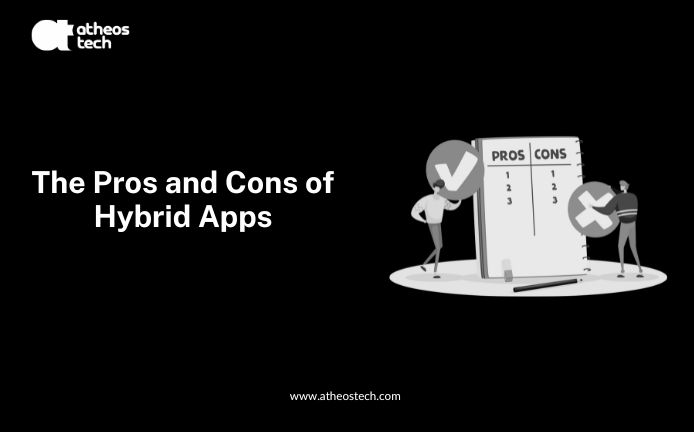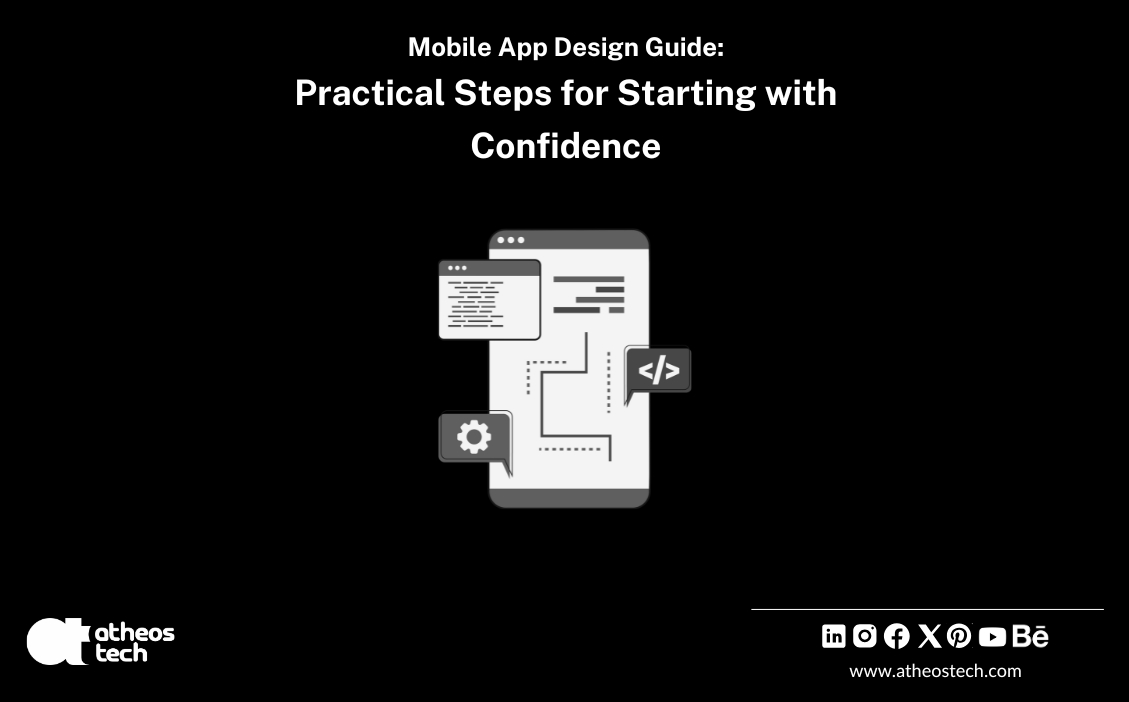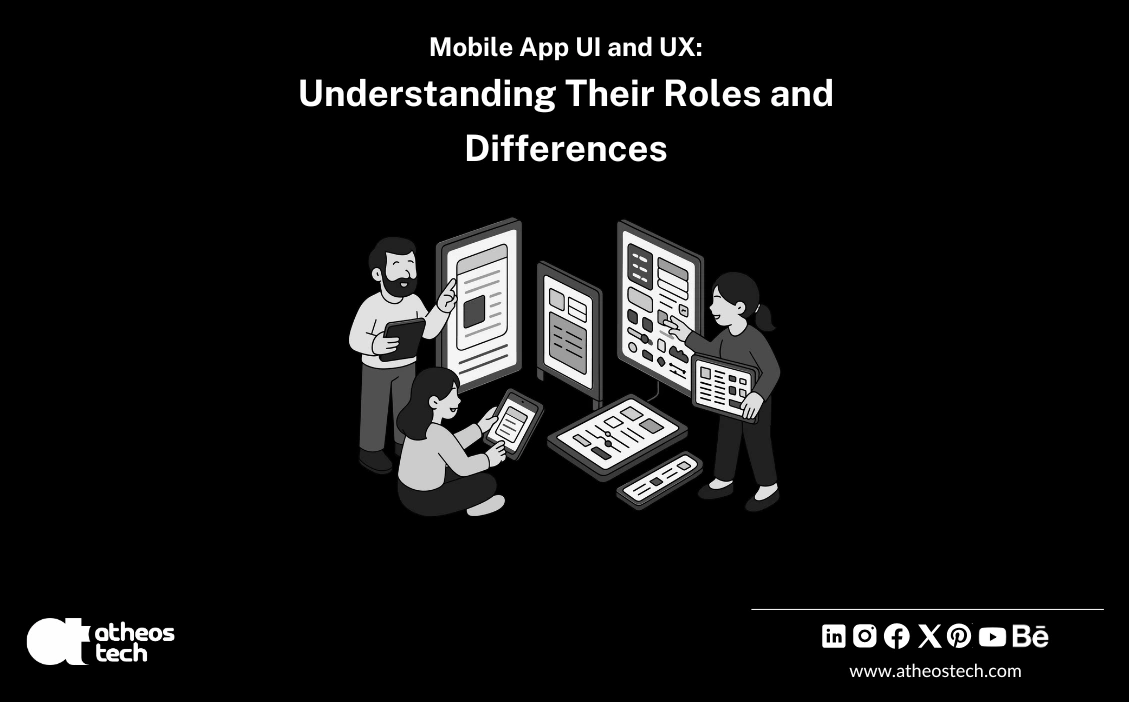
Pros And Cons Of Hybrid App Development For Android
Table of Contents
In the context of Hybrid App development Jordan, enterprises are looking for effective, reasonably priced and expandable strategies that would satisfy the different tastes of their clients. One of the most solutions is perhaps hybrid app development as it integrates the features of both native and web apps, with the best features supposedly used. In the case of Hybrid App development Jordan, companies are able to develop less, spend less, and reach consumers in several devices more effectively and efficiently.
If you’re a company based in Jordan and want to get into the app market app too, hybrid app development should be a good fit for you. It is cost-effective and also allows you to publish the app to both Android and iOS app stores without the need for deploying two separate app development teams. Let us expand even further and define what hybrid apps are and if they are indeed best for your company.
What Is Hybrid App Development?
Let’s begin while keeping it simple. Hybrid app development involves using one code source to develop applications compatible with twin platforms such as Android and iOS. The limiting factor is that web-based application creation can be done only in web languages ie. HTML, CSS and JavaScript, and wrapping the app in a native framework makes it to behave like a normal mobile application.
Sounds smart, right? You save time, money, and effort while delivering a functional, user-friendly app to your customers.
How App Development Is Changing The Game for Jordanian Businesses

Well, do you want to know why businesses around Jordan should bother with hybrid app development? Here’s a better way to explain it:
1. It is Economically Viable
Let’s look at the expenses related to developing a hybrid app for a business. To begin with, the costs related to developing two distinct apps – one to suit Android users and the other to accommodate iOS users – can be high. For hybrid apps, however, only one needs to go through the development stage which brings the costs down. This is beneficial for start ups and small businesses in Jordan who want to establish themselves but do not have a lot of capital.
2. The Duration is Faster
The competition in the app market is cutthroat, and no one can afford to delay the launch of their apps. Because hybrid apps are built from a single codebase, writing one is quicker and doesn’t take as long to deploy as native apps that take longer to develop. The businesses in Jordan wishing to follow the trend or wanting to release time specific applications can gain a lot from this.
3. Larger Market Base
There are a sizable proportion of iOS and Android users in Jordan. With hybrid apps, businesses do not have to worry about alienating a part of their customers. One app suits everyone – irrespective of whether it is a Samsung Galaxy or an iPhone, it fits.
How Hybrid App Development Works
Planning – Begin by determining the purpose of the application as well the type of audience it seeks to target.
Design – Utilize online technologies, in particular Markup Language (HTML) and cascading style sheets (CSS), in order to create a standard-compliant interface.
Development – Code the application using Java script language and integrate the app into a native platform.
Testing – Conduct rigorous testing of the application on android and iOS to ensure that it is fully functional.
Launch – Release the application into the market through app stores and track customer response.
Say Goodbye to High Maintenance Costs. Choose Hybrid Apps for Seamless Performance!
The Pros and Cons of Hybrid Apps
Just like everything else, hybrid apps have their ups and downs. Let’s go with Hybrid App development consulting service over them so you know what to expect.

Benefits of Hybrid Mobile Applications
1. Low Maintenance
Hybrid mobile applications are much easier to sustain relative to native applications thanks to their use of HTML, CSS, JavaScript. They do not need to be updated every time a new version of the operating systems is launched. This means that hybrid applications are strong and flexible which frees businesses from continuous expenses and expenditures. It also becomes more manageable for maintenance and the operations work uniformly on all devices.
2. Economically Friendly Development
Another great benefit of hybrid apps is their cost efficiency. Businesses only need to maintain a single code base that can be used across many platforms, hence cutting down the development cost. This is particularly helpful for startups and small-scale industries. Hybrid applications are a ready made solution that enables entrepreneurs to meet their goals without investing heavily.
3. Reduced Development Time
When working with hybrid applications, the developers cut down on quite some time due to one general code base. Thus, this general language allows focus on more than one platform at once. The development cycle becomes shorter and the time spent on quality assurance and testing reduces as well. Therefore, Hybrid Application development in Jordan is a very attractive option for companies that are looking to put their product in the market as quickly as possible. There is also less time spent on sending the final version of the project at which point it has gone through a series of error-checks by QA engineers which makes the application development process seamless and efficient.
4. Scalability Across Platforms
Another key benefit is scalability. Since they are hybrid, such applications are meant to be used in multiple devices. Because of minimal work involved, an app can be fine-tuned and scaled to operate on other operating systems. This empowers hybrid applications making them suitable for businesses that wish to offer their services on an international level.
5. Regular and Easy Updates
Hybrid apps can be updated regularly without much difficulty and any bugs that may be found are easily repaired. These changes are made in real time and have the clients’ side users hooked. They are way more effective and faster than their native counterparts that mostly contain instances where the app needs approval from the app stores for modification. This keeps the application reliable and always up-to-date augmenting the experience of the users.
6. Multi-Platform Compatibility
Hybrid apps in their nature run on numerous platforms such as iOS, Android operating systems, and even web pages. Hence, there isn’t a need to invest time and resources to develop specifically the web version. Organizations are able to maintain a standard across all the platforms without spending a huge sum of money targeting many customers at a go. The cross-platform compatibility also increases the option of hybrid applications for corporations with multi varied users.
7. Offline Features
One of the interesting characteristics of hybrid apps is the ability to function without an Internet connection. Unlike certain native applications, hybrid applications enable users to retrieve certain functionalities and content even when they are not online. This is quite appealing for users who are located far from cities and do not have much internet connection, and thus makes the app interesting and more useful to a larger population.
Must Read: How to select the right mobile app development company.
Disadvantages of Hybrid Mobile Apps
1. Performance Constraints
Hybrid applications are easy to develop and maintain, however, their advantages may in some cases be off set by their performance. Those applications that are data intensive and require instant responsiveness are bound to have some performance lags. This is a performance gap that for the more demanding users may be able to affect the users perception of the particular app. Operational businesses that demand impressive IT systems might have to think twice before using hybrid apps in central activities.
2. Graphics Quality Compromise
Through the hybrid app, there is an of 3D advanced knitting graphics quality. Hybrid apps have animating flaws, complex visual designs, or advanced visual aids. This could be a setback for companies that are focused on having a good User Interface (UI) and good graphics that stands out as it would require another level of extra work to ensure good results.
3. Irregularities
In some instances, glitches may occur due to this dependence on internet technologies. The content in hybrid loaded apps is not always as responsive as the content in native apps. This problem is usually annoying to users and affects the application’s credibility. This is a common concern for higher-end applications although developers can cover such glitches through tried and tested optimizing techniques.
4. Difficult debugging
Hybrid applications make use of one code base to deploy across different platforms. Therefore, debugging the programs becomes a headache. It takes time to check out various cross supported operative systems for a fault or even to consider one for a correction. This contributes to the already established expenditure on development and may usefully require specialized experience in the correction of such faults.
5. Browsers App Availability
So, if native apps are readily accessed in the app store, users would not need to type a URL every time. This can create additional layers for users as hybrid apps are a type of app that usually uses a browser to show its content whereas native apps are downloadable off the app store. In this case, the user journey may become less self-explanatory which’s not optimal especially for users who are not very skilled with technical devices.
6. Limited Native Functionality and UX
Hybrid applications do not have access to some of the native features that are readily available in platform specific apps. This limitation hampers the app’s ability to offer a superior user experience. Moreover, the aesthetics of the interface may not be appealing or interesting at all, which is a dealbreaker for users who have gotten used to better native applications.
7. Issues Related to Stability
Stability is yet another area in which hybrid apps can disappoint. The hybrid services across platforms may not be very encouraging and consistent all the time thereby leading to user disappointment. For companies looking to provide a robust and future-proof app experience, this instability is certainly a challenge.
Simplify Development, Maximize Reach! Build Fast, Scalable Hybrid Apps That Perform.
Popular Apps Built with Hybrid Technology
You’d be surprised at how many big names use hybrid app development! Here are a few examples:
- Instagram: This social media giant uses hybrid technology to combine the best of web and native functionalities.
- Uber: The world’s leading taxi app is also a hybrid app, offering a smooth and reliable user experience.
- Gmail: Even Google uses hybrid development for its email app, combining the power of web components with native features.
- Twitter: Handles massive traffic daily with hybrid technology.
These examples prove that hybrid apps can perform at a level comparable to native apps.
Essential Aspects to Think About Before Embarking on a Hybrid App Project
Listen, starting to work with a hybrid app requires considering the following beforehand:
Potential Users: Considering the people who will use your app, do you think they pay greater attention to performance and other app features? If yes, then you will have to think twice.
Level of Complexity In The App: Hybrid applications are suitable for less complicated practice, however, if yours is graphics-intensive, native development may be more ideal.
Available Funding: The cost and timeline for hybrid apps are reasonably low, however, ensure the funds allocated for the app correspond with its objectives and features.
Conclusion
The most cost-effective solution is the development of hybrid apps, especially in the market of Jordan. Irrespective of your understanding of this domain or even your experience, hybrid apps provide functionality to everyone, be it a newly found business seeking ways for an easier market entrance or an existing firm looking for a cheap alternative.
AtheosTech provides excellent freelance assistance in the business of hybrid application development Jordan. This includes reducing the expenses associated with development and making the mobile application compatible with multiple mobile platforms.
So, are you ready to build a multi-platform hybrid app that is useful? Let’s meet and we’ll put your plan into action!




